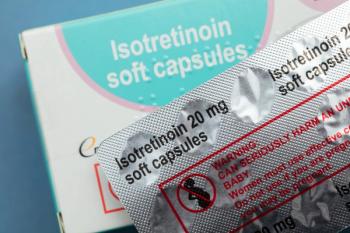
Multiple Sclerosis Drug Fails to Meet Primary Endpoint in Phase 3 Trial
Laquinimod fails to outperform placebo in patients with relapsing-remitting MS.
The relapsing-remitting multiple sclerosis (RRMS) drug laquinimod was hit with another setback after failing to reach its primary endpoint in the phase 3 CONCERTO trial.
Laquinimod is a selective aryl hydrocarbon receptor activator designed to target neurodegeneration and inflammation using a novel mechanism of action, according to a press release.
The CONCERTO trial was a multinational, multicenter, randomized, double-blind, parallel-group, placebo-controlled study followed by an active treatment period. Included in the study were 2199 patients with RRMS who were randomized to receive either 0.6 mg of laquinimod daily, 1.2 mg of laquinimod daily, or placebo.
After 1 year, patients in the 1.2 mg of laquinimod arm discontinued the treatment. Furthermore, the lower dose did not meet the primary endpoint of time to confirmed disability progression (CDP) after at least 3 months.
Secondary endpoints measuring time to CDP at 6 and 9 months did not reach significance, according to the release.
For the exploratory endpoint of a reduction in the number of gadolinium-enhancing T1 lesions at month 15, laquinimod demonstrated a 30% reduction.
Laquinimod-related adverse events reported in 5% or more of patients who received 0.6 mg daily of laquinimod were headache, nasopharyngitis, back pain, and arthralgia.
“We have learned a great deal from the CONCERTO trial and we will continue our analysis of the data,” Michael Hayden, MD, PhD, president of Global R&D and chief scientific officer at Teva, said in a press release. “Although we are disappointed by not meeting the primary endpoint, we did see positive results on a number of secondary and exploratory endpoints which fuels our belief in the potential of laquinimod as a possible treatment for neurodegenerative diseases. While we have no current plans to further pursue laquinimod in RRMS, we are continuing to study it in 2 other trials.”
Following the disappointing trial results, shares for Active Biotech traded down 66%. Since the beginning of 2011, shares for the Swedish company have fallen 97%, according to Fierce Biotech.
Newsletter
Stay informed on drug updates, treatment guidelines, and pharmacy practice trends—subscribe to Pharmacy Times for weekly clinical insights.








































